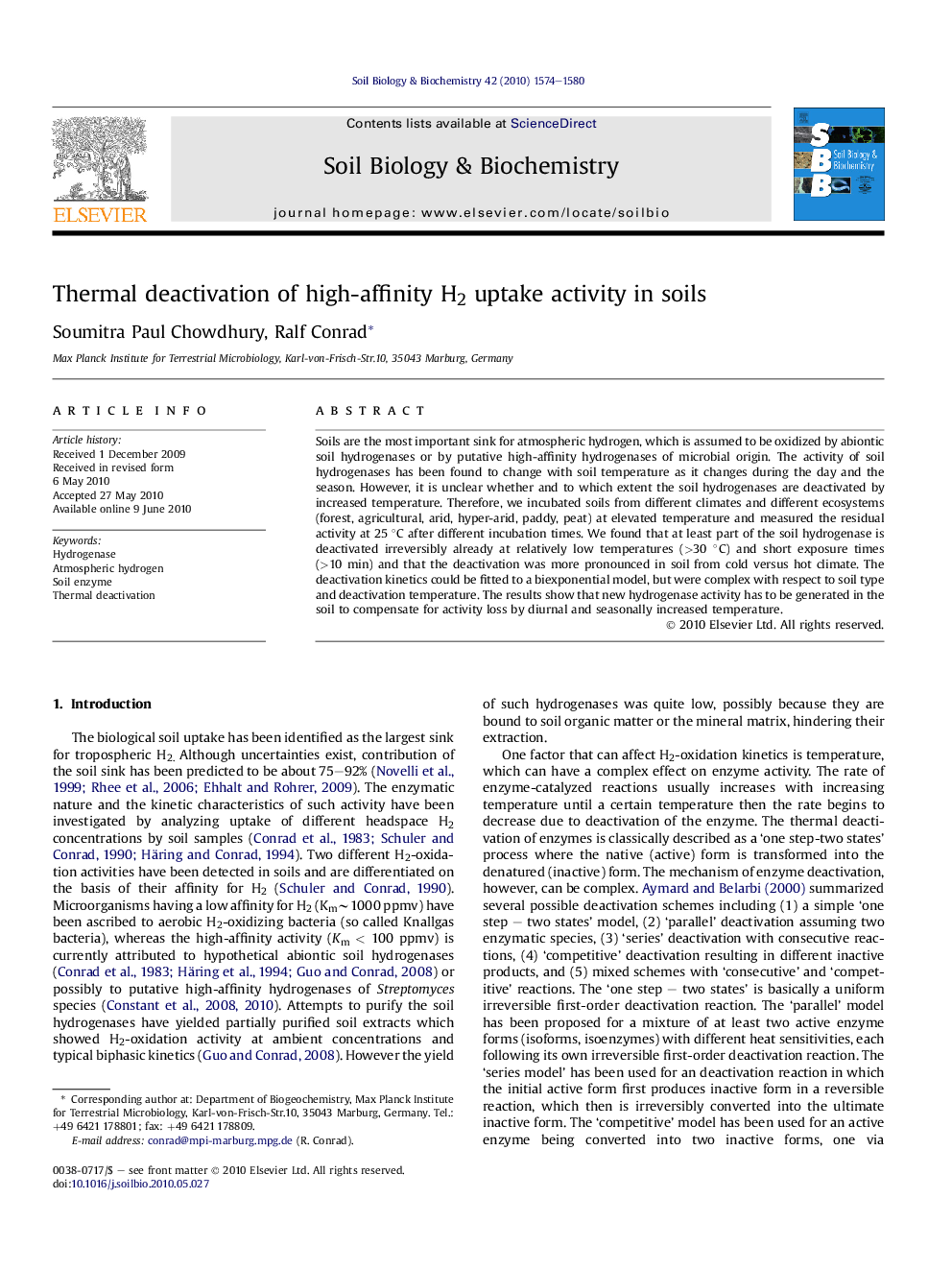| Article ID | Journal | Published Year | Pages | File Type |
|---|---|---|---|---|
| 10846127 | Soil Biology and Biochemistry | 2010 | 7 Pages |
Abstract
Soils are the most important sink for atmospheric hydrogen, which is assumed to be oxidized by abiontic soil hydrogenases or by putative high-affinity hydrogenases of microbial origin. The activity of soil hydrogenases has been found to change with soil temperature as it changes during the day and the season. However, it is unclear whether and to which extent the soil hydrogenases are deactivated by increased temperature. Therefore, we incubated soils from different climates and different ecosystems (forest, agricultural, arid, hyper-arid, paddy, peat) at elevated temperature and measured the residual activity at 25 °C after different incubation times. We found that at least part of the soil hydrogenase is deactivated irreversibly already at relatively low temperatures (>30 °C) and short exposure times (>10 min) and that the deactivation was more pronounced in soil from cold versus hot climate. The deactivation kinetics could be fitted to a biexponential model, but were complex with respect to soil type and deactivation temperature. The results show that new hydrogenase activity has to be generated in the soil to compensate for activity loss by diurnal and seasonally increased temperature.
Related Topics
Life Sciences
Agricultural and Biological Sciences
Soil Science
Authors
Soumitra Paul Chowdhury, Ralf Conrad,
